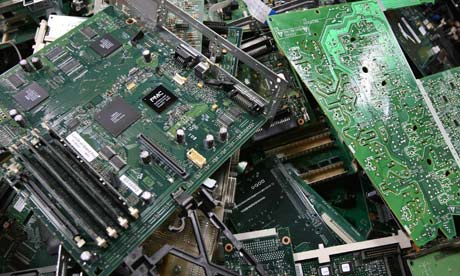
Guiyu has long been a towering symbol of the mounting global problem of e-waste. The town on the South China Sea coast also illustrates the opportunity companies overlook when they send unwanted computers, smartphones and electronic equipment abroad for disposal. The statistics are daunting. According to the US Environmental Protection Agency, 438 million new consumer electronics were sold in America during 2009. That same year 5 million tons of electronics were entombed in storage, with 2.37 million tonnes ready for what in industry jargon is "end of life management."
Both the rising quantities and rate at which e-waste is produced are thedark side of Moore's Law. The curse of accelerating innovation is increasing product obsolescence. In 1995, the average life span of a computer was five to seven years. By 2000 it had fallen to approximately three years. Now the average lifespan is well under two years. Add the unwanted mobile phones and networking equipment that companies no longer need, and the outcry over their cumulative toxins roars louder. Estimates suggest that 80% of the e-waste in the US is landfilled. Around the world a total of 40 million tonnes of this waste is either incinerated or sent to a rubbish dump. Therefore consumers, businesses, and municipalities are leaving money on the table by carelessly trashing what is the world's fastest growing, and valuable, waste stream.